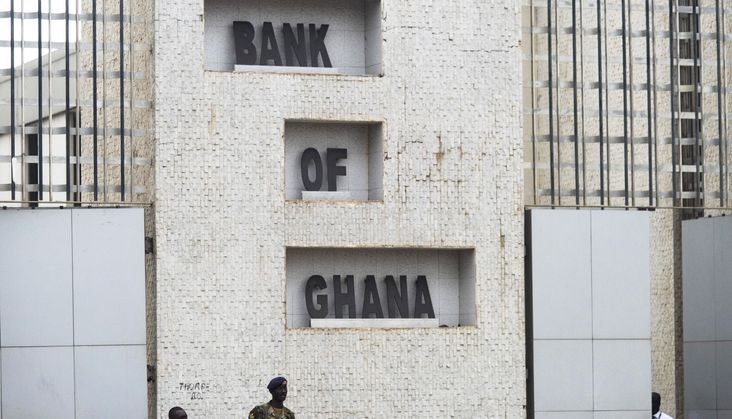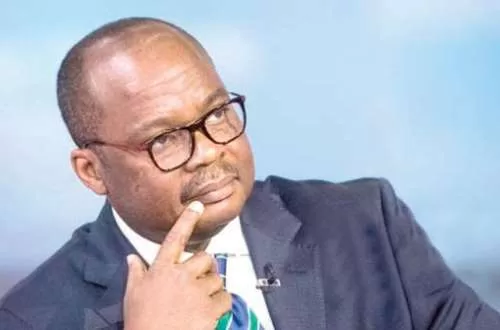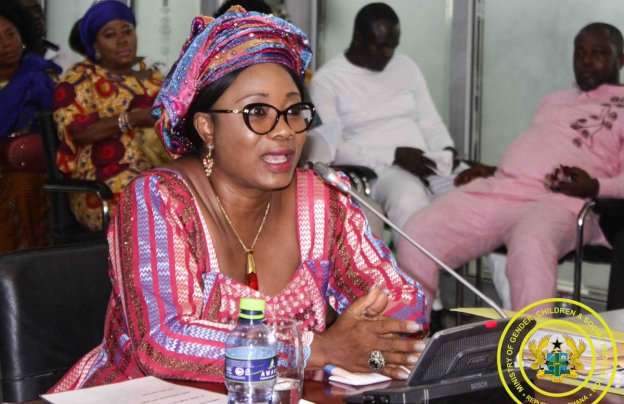Ishmael Yamson[/caption]
Management consultant and outgoing Board Chairman of Standard Chartered Bank Ghana Limited, Dr Ishmael Yamson, has taken a swipe at the plea of locally owned banks to be given up to December 2022 to recapitalise to GH¢400 million, describing it as a discriminatory tactic that must not be entertained.
He argues that should the Bank of Ghana (BoG) yield to that pressure by bending the directive on recapitalisation only for the domestically controlled banks, the central bank will be setting a precedent alien to the fundamental law governing investments in the country – the Ghana Investment Promotion Centre (GIPC) Act, 2013 (Act 865).
“This will mean that the central bank no longer has the moral right to enforce its own directive on recapitalisaton on the foreign banks, Dr Yamson, who chaired StanChart’s board for 13 years, said.
“The license that we take from the central bank does not say this licence is for a local bank and this is for a foreign bank; it is a license for you to operate in Ghana; it is a universal license,” he told the GRAPHIC BUSINESS on June 7.
“So, I will encourage the central bank to insist and enforce (such) that whether you are a local or foreign bank, you should bring up the GH¢400 million capital by December 31, 2018.
“There should be no discrimination because after all, when you read our GIPC law, it says that there should be no discrimination between foreign and local companies. It is there in black and white,”.
“So, if the central bank decides that they will not enforce the law on the local banks, then they cannot also enforce it on the foreign banks otherwise, they will be discriminating against foreign banks,” he said.
The Nigerian example
Like many proponents of mergers in the banking sector, Dr Yamson said Nigeria presented a perfect reason why banks should consolidate their numbers.
“My position is very clear – let the local banks merge; let them come together and build bigger banks. We have 34 banks in this country and 34 million people, so every million people to one bank?
“How many banks are in Nigeria? With 180 million, they have just six banks. Does it make sense for us? It does not make sense to me,” he said. Petition
Dr Yamson’s strong stand for equal application of the recapitalisation directive on all banks follows a petition from local banks to the Presidency, requesting extra four years to meet BoG’s new capital demand.
Under the group name, the Association of Indigenous Universal Banks, the domestically owned banks argued that their respective financial situations made it impossible for them to recapitalise to GH¢400 million by December this year, as required by the BoG.
They insisted that mergers and acquisition, although a financial tool for meeting the central bank’s demand, was time- consuming and would also have grave repercussions on the economy and the financial sector in particular.
In a petition sent to President Nana Addo Dankwa Akufo-Addo in April, this year, the association said: “Even if a merger is a possible solution, it is unlikely that a successful merger of two or three banks can be achieved within a relatively short period of one year, considering the due diligence activities that have to be undertaken before mergers are consummated.
“Furthermore, the merger option could have very serious negative consequences on the economy,” the banks said, citing possible job losses and challenges with integration.
In their estimation, each merger could lead to “a loss of employment of between 500 and 1,000 persons”.
“Such lay-offs could undermine the government’s efforts to create employment. The social costs could, therefore, outweigh the potential benefits of the merger,” they added.
As a result, they pleaded with President Nana Akufo-Addo to prevail upon the central bank to extend the date to December 2022 to allow them to recapitalise in stages, starting with GH¢170 million by December this year.
After receiving the petition, the President constituted a committee to look into the demand and make recommendations.
GRAPHIC BUSINESS is reliably informed that the committee is wrapping up its work which will insist that the December 2018 deadline be obeyed.
Respect the rules
Dr Yamson said the demand and petition of the local banks was unnecessary given the essence of large capital in banks’ survival and success.
“If the local banks want to be significant in this economy, they should learn to merge; it happened in Nigeria and it must happen here.
“But if they choose to remain as individual banks, then they must raise the money.
“They cannot say that because I am a local bank, I cannot raise GH¢400 million. Why? Why should you not raise the GH¢400 million and why should it be so,” he queried.
He said concerns that forcing the local banks to recapitalise by December this year would lead to a takeover of the entire banking sector by foreign interests were misplaced.
Citing the telecommunications sector as an example, Dr Yamson, who chairs the MTN Ghana board, said it was the influx of foreign entities into that sector that led to its growth.
That, he said, could be replicated in the financial sector.
He further asked local banks to prioritise good governance in their dealings, describing it as existential.
“For me, good corporate governance is existential; either our banks obey and do what is right and exist or they will die,” he said.
Source: Graphic | Ghana]]>
Petition
Dr Yamson’s strong stand for equal application of the recapitalisation directive on all banks follows a petition from local banks to the Presidency, requesting extra four years to meet BoG’s new capital demand.
Under the group name, the Association of Indigenous Universal Banks, the domestically owned banks argued that their respective financial situations made it impossible for them to recapitalise to GH¢400 million by December this year, as required by the BoG.
They insisted that mergers and acquisition, although a financial tool for meeting the central bank’s demand, was time- consuming and would also have grave repercussions on the economy and the financial sector in particular.
In a petition sent to President Nana Addo Dankwa Akufo-Addo in April, this year, the association said: “Even if a merger is a possible solution, it is unlikely that a successful merger of two or three banks can be achieved within a relatively short period of one year, considering the due diligence activities that have to be undertaken before mergers are consummated.
“Furthermore, the merger option could have very serious negative consequences on the economy,” the banks said, citing possible job losses and challenges with integration.
In their estimation, each merger could lead to “a loss of employment of between 500 and 1,000 persons”.
“Such lay-offs could undermine the government’s efforts to create employment. The social costs could, therefore, outweigh the potential benefits of the merger,” they added.
As a result, they pleaded with President Nana Akufo-Addo to prevail upon the central bank to extend the date to December 2022 to allow them to recapitalise in stages, starting with GH¢170 million by December this year.
After receiving the petition, the President constituted a committee to look into the demand and make recommendations.
GRAPHIC BUSINESS is reliably informed that the committee is wrapping up its work which will insist that the December 2018 deadline be obeyed.
Respect the rules
Dr Yamson said the demand and petition of the local banks was unnecessary given the essence of large capital in banks’ survival and success.
“If the local banks want to be significant in this economy, they should learn to merge; it happened in Nigeria and it must happen here.
“But if they choose to remain as individual banks, then they must raise the money.
“They cannot say that because I am a local bank, I cannot raise GH¢400 million. Why? Why should you not raise the GH¢400 million and why should it be so,” he queried.
He said concerns that forcing the local banks to recapitalise by December this year would lead to a takeover of the entire banking sector by foreign interests were misplaced.
Citing the telecommunications sector as an example, Dr Yamson, who chairs the MTN Ghana board, said it was the influx of foreign entities into that sector that led to its growth.
That, he said, could be replicated in the financial sector.
He further asked local banks to prioritise good governance in their dealings, describing it as existential.
“For me, good corporate governance is existential; either our banks obey and do what is right and exist or they will die,” he said.
Source: Graphic | Ghana]]>
Merge or die – Ishmael Yamson rebukes plea of local banks
Reading Time: 5 mins read
Recent Posts
- NPP sacks MP for Agona West Cynthia Morrison, 279 others from party
- The ECOWAS Bank for Investment and Development wins the Africa Sustainability Award
- Ghanaian sports journalist Naa Shika Stargurl shines on global stage
- Central Regional Minister to go to Court over her dismissal from NPP?
- NPP accuses NDC of lawlessness, demands urgent re-collation by EC in disputed constituencies
- Anytime there’s vigilance, NDC wins – Malik Basintale
- Akufo-Addo statue in Takoradi suffers partial damage amid controversy
- Current financial year proving challenging for COCOBOD – IMF
Popular Stories
-
NPP sacks MP for Agona West Cynthia Morrison, 279 others from party
-
Central Regional Minister to go to Court over her dismissal from NPP?
-
Agona West NPP expels Regional Minister, 282 others for anti-party activities
-
Ghanaian sports journalist Naa Shika Stargurl shines on global stage
-
Blue Gold to drag Ghana to World Bank as Jinapor approves sale of Bogoso Prestea Mine

ABOUT US
Newstitbits.com is a 21st Century journalism providing the needed independent, credible, fair and reliable alternative in comprehensive news delivering that promotes knowledge, political stability and economic prosperity.
Contact us: [email protected]
@2023 – Newstitbits.com. All Rights Reserved.















